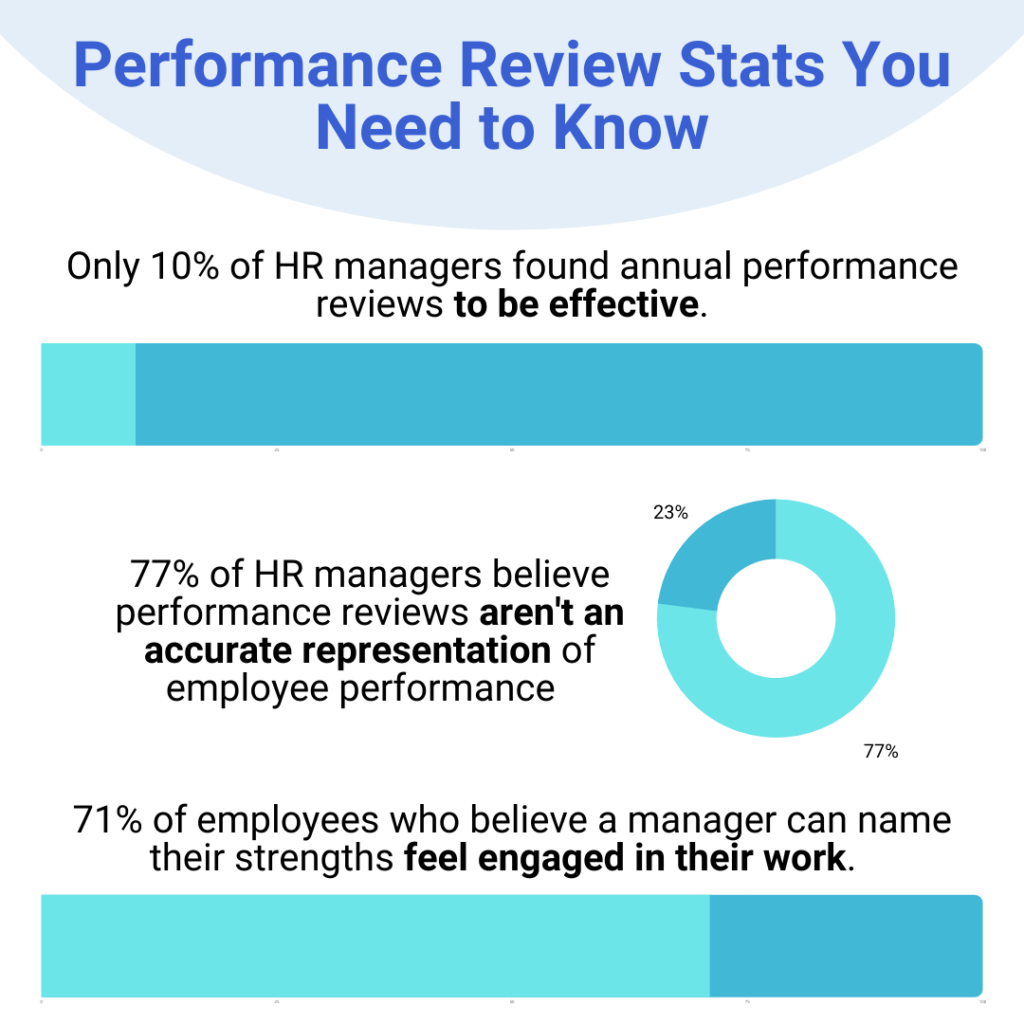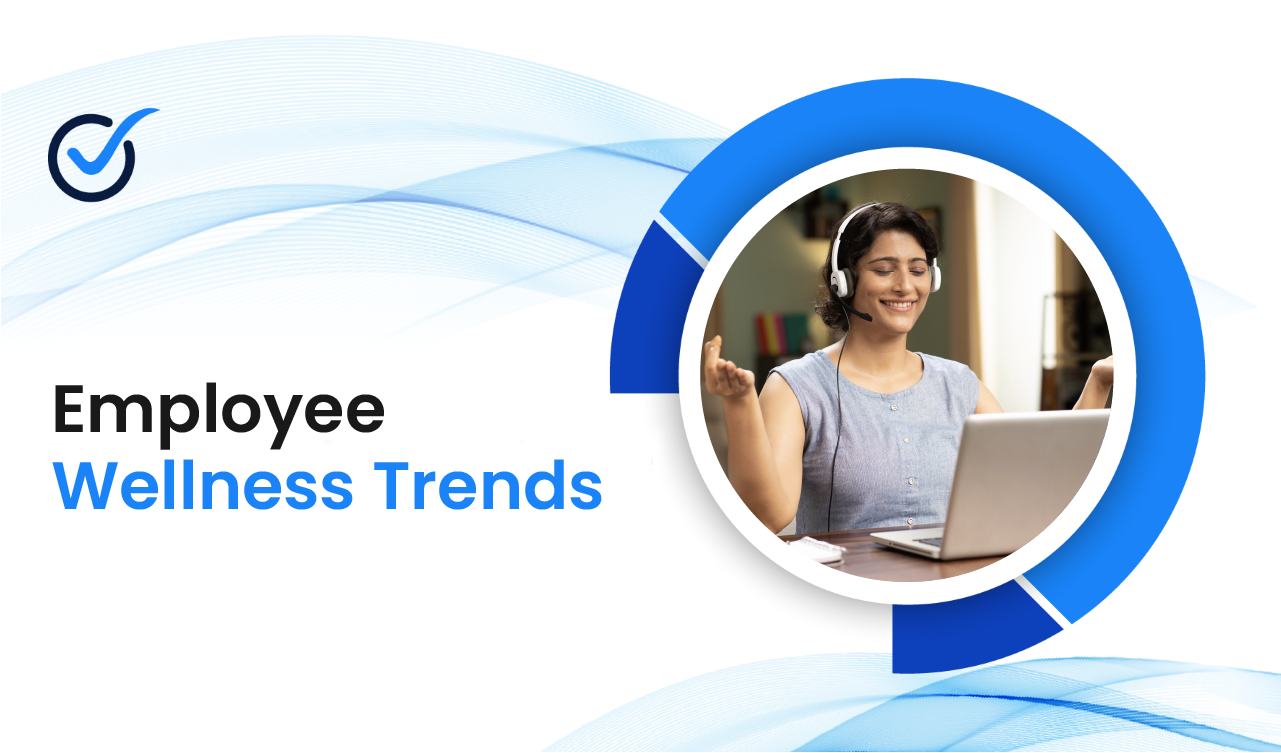Table of Contents
Employee performance reviews have long been a standard part of the corporate culture. They help to serve as a benchmark for the employee, guiding them and gently pushing them in the direction they need to go. Without such reviews, it would be almost impossible for a company to achieve its goals.
However, like everything else, it is time to rethink employee performance reviews. For a post-COVID world, the standard way of measuring an employee’s progress will just not work. As an HR manager, it is up to you to ensure that your company is taking advantage of the latest tools and trends in performance evaluations and appraisals.
Doing so will allow you as an HR manager, and your company, to ensure that you are getting the best out of your employees. With remote working and flexible working now here to stay, that’s more important than ever before.
Why the Current System is Inadequate?
Each company has its own method of doing employee performance reviews. Some prefer quarterly reviews, others yearly. Irrespective of the frequency, there are some common elements that just aren’t apt for the remote working era. Here are just a few major issues with the current system:
- Irregular Reviews: Yearly or half-yearly reviews are too late for employees to make any meaningful change. A sudden review followed by a list of required changes is hard for anyone to accommodate. If you want employees to be constantly growing, you need to be more regular with your reviews.
- Standardized Reviews: Currently, the review system is standardized across the company, applying to employees across job profiles. Such a system doesn’t fully capture the details of all employees and their job, which is quite unfair.
- Inappropriate Goals: In the current economic crisis, it is likely you have an employee juggling multiple tasks and roles. Goal setting needs to be done keeping in mind their strengths and weaknesses, and not just their role. Inappropriate goals can overburden an employee.
- Lack of Guidance: It is very common for managers to set goals for an employee, without providing them an adequate roadmap. Some employees can navigate this, but most will require some form of guidance. Without guidance, it is likely that without guidance, employees will fail to improve and grow, which will harm the business.
- Time Consuming: A YouGov survey of 800+ UK workers found that 39% of people believed current employee performance reviews were time-consuming and pointless. Forcing employees to take time out for this activity not only distracts them from getting on with their job but also forces them to spend hours, if not days.

There are, of course, plenty of other issues as well. Without a physical office or face-to-face interaction, it is very likely that these issues will be worse. That’s not good for employee morale, engagement, or satisfaction.
Employee Performance Reviews for a Post-COVID World
This is where you as an HR manager come in. Here are some ways to update your company’s employee performance reviews system for the remote working era.
- Constant Communication: Ensure that employees interact with their managers on a weekly basis. Good communication is the foundation for a strong relationship, and to set realistic and achievable goals.
- Guidance: Constant communication will give employees the guidance they need. It is a good idea to give the employee a “buddy”, someone who isn’t in a senior role but has more experience. That way, they will have someone to turn to.
- Custom Metrics: Use performance review software to set custom metrics for each employee, based on their role and skills. You need to ensure reviews are tailored to each employee so that they have value.
- Shorter, Frequent Reviews: Rather than lengthy annual reviews, move towards short monthly performance reviews. It will give you as an HR manager more data to judge the employee’s performance and will make the process shorter for employees.
- Shared Goal Setting: Employees should work with their managers to set goals. A shared approach will help the employee feel like his opinion matters, and will also help set achievable goals.
- Use a Human Approach: Train your team to be empathetic to others when doing employee performance reviews. That way, they will feel more cared for, motivating them to give their best. A dry data-based review system will further isolate employees from the company.
- Multi-directional Feedback: Employee performance reviews should not be just for an individual employee, but the team. Employees should be able to provide feedback to senior managers and other team members. It will help build a more transparent company culture.
To ensure that you get the best out of your team, as an HR manager there are plenty of things you can do for the remote working era. Performance reviews are just one of them. Also, think about your company culture and healthcare benefits for employees. For a post-COVID world, the right employee healthcare plans can do wonders to attract and retain the right talent.
Ensure that your business health plans have the right benefits for 2021 and beyond. Here’s another blog you will find helpful about the comprehensive employee wellness programs. Do bookmark this blog for more great tips on managing your team, and employee healthcare benefits.







